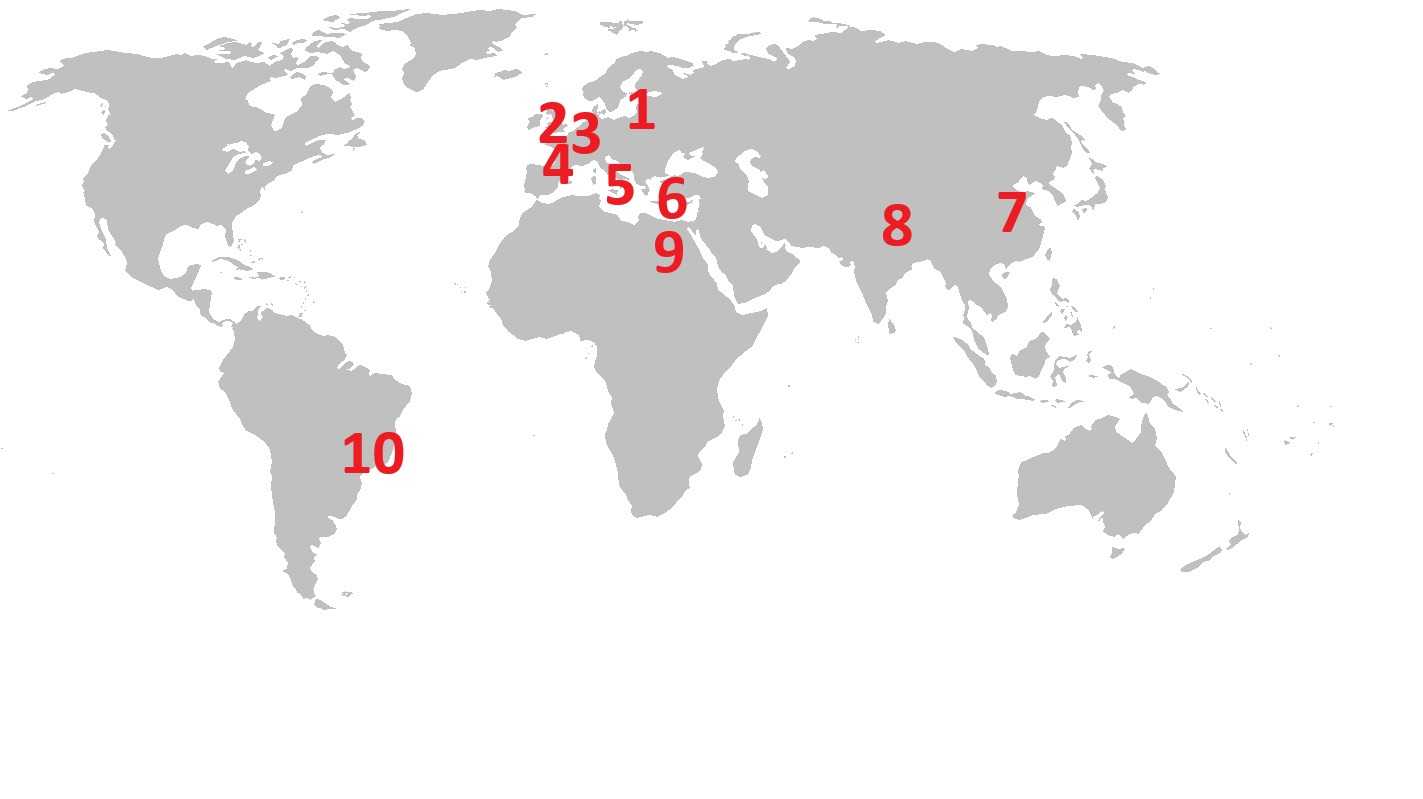
Philosophy of the World Trivia Quiz
The title refers to a LP by The Shaggs, perhaps the worst received record ever. But this quiz deals not with the music, but with philosophers. Where were they born? I've added the country for the numbers that are very close together.
A label quiz
by JanIQ.
Estimated time: 3 mins.
